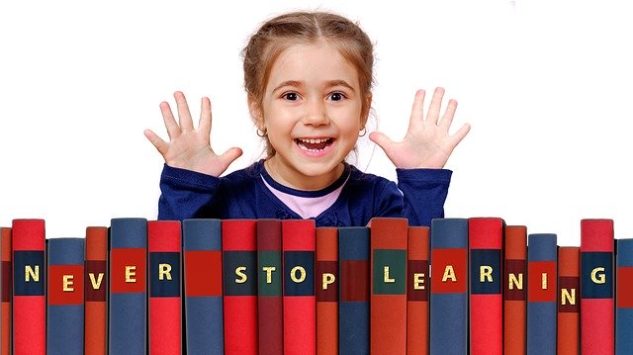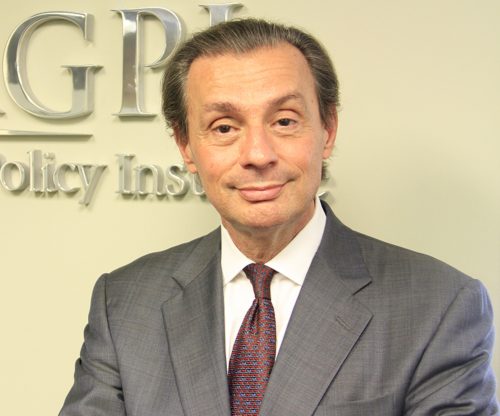Issue Briefs

When Education Is Valued
Paolo von Schirach
August 23rd, 2020.
WASHINGTON – Discussing Joe Biden’s pick for Vice President, it has been noted that Senator Kamala Harris’ mother came from the top placed Brahmin caste in Tamil, a state in south eastern India. While we know that the Indian caste system created hereditary privileges for those lucky enough to be born in the Brahmin caste, slated to become priests and academics, it is important to stress that the Tamil Brahmins, (colloquially known as Tambrams), were not just an entitled social class with hereditary power and prestige. They strongly cultivated education, for themselves and their offspring, as an extremely important value and key priority.
The importance of learning
Which is to say that children born into these Tamil Brahmin families are taught from a very young age that it is their noble duty to learn and do their very best to excel in all academic subjects, while also learning to appreciate literature, music, and the arts. In a sense, learning for the young Tamil Brahmins was and is a devotional activity. Becoming well educated was and is considered an indispensable precondition for those who aspire to fill important leadership positions within their societies.
It appears that the Tamil Brahmins who left India and emigrated to other countries brought this core principle with them. So, it is no surprise that Harris’s mother, a precocious young scientist who came to the US at age 19 with the goal of becoming a cancer researcher, taught her two daughters the value of education.
And the lesson was well received. Young Kamala Harris received every possible incentive to do well in school and then pursue a higher education. Eventually she became a lawyer, and then a prosecutor and finally California’s Attorney General. Compared to millions of children who do not receive this strong incentive to learn, it is quite clear that Harris, a first generation kid, daughter of minority immigrants, (her father was a Black Jamaican economist), was lucky to have a mother who explained to her how vital a good education would be for her. She grew up in an environment that valued and revered academic accomplishment and the acquisition of new knowledge. Pursuing it became second nature for her.
Ben Carson’s mother
Jumping to a completely different scenario, there is the story of Dr. Ben Carson. He grew up in a household of modest means. He was a Black kid raised by a mother who worked as a housekeeper. This was not the ideal environment for developing extraordinary academic interests and abilities. And yet this is exactly what happened. But not by accident. It happened because Carson’s mother, having observed how the children of the White families she worked for spent hours reading while doing their homework, insisted that her sons would also engage in a rigorous reading routine.
Thanks to the strong and loving encouragement of an uneducated mother who however grasped the critical importance of learning, Ben Carson did well in his studies, and later on became a famous pediatric neurosurgeon. Again, this was not a fluke, nor a miracle. It was mostly about the positive influence of a loving mother who wanted her kids to escape the limitations of their environment by acquiring the intellectual tools that would allow them to become well educated adults, and therefore able to climb up the socioeconomic ladder.
Good Charter Schools
Add to this list very successful charter schools like the Success Academy schools founded by pioneer educator Eva Moskowitz in New York City. Mostly minority children, many coming from truly disadvantaged families, come into these charter school on the basis of a lottery system. In other words, there is no prescreening, or preselection of the best and brightest. By definition, these children come to the Success Academy schools with no built-in socio-economic advantages. Probably there are few if any books at home. And in most cases they have parents who may not exercise the positive influence of Carson’s mother, pushing them to read.
And yet, what look like miracles do happen in these charter schools. Children who are truly disadvantaged do well. In fact, extremely well. According to Moskowitz, in her Success Academy schools kids perform well because while in school they develop love of learning.
Love of learning
I think this is the key issue; for without love of learning school is at best an obligation. Quite often, lacking a real desire or incentive to pursue higher degrees, a chore to be ended as soon as possible. And when the quality of teaching is low, (this is often the case in many American public schools), if you combine lack of interest on the part of the children and poor teaching, the end result of this “education” is bad to horrible.
So, what do we make of all this? The lesson I see is that education, especially for the underprivileged, cannot be just a routine service, something that is dished out just because it is mandatory service; but without any enthusiasm, and far too often by under qualified and unmotivated instructors.
Help underprivileged kids
Someone –parent, guardian, big brother, big sister, teacher, mentor, priest– must instill in the young person a love of learning. And this is especially important for the children who, due to no fault of their own, are raised in a household with a low level of literacy, and therefore almost no intellectual stimulation. Compared to their peers who grow up as children of well educated parents, with lots of books at home and dinner conversations that focus on literature, science, the arts, technology, and more, these kids have enormous obstacles in front of them.
This is why it is so important to encourage the creation of more high quality charter schools where children hopefully will find a nurturing environment that will stimulate in them the love of learning –the essential propellent leading to higher achievement.
Adults as mentors
For all the others kids, it is absolutely crucial that some adults, it doesn’t really matter who, will mentor them, show real interest in them, and help them appreciate learning, and help them understand how through learning they will be able to broaden their minds, understand new subjects, establish connections and distinctions.
Kamala Harris benefited from the revered Tamil Brahmin tradition. Ben Carson had a loving mother who intuitively understood the value of education. Success Academy pupils receive precious incentives while in school.
But millions of kids are not so lucky. They need help. Ideally, great teachers will generate love of learning. But we do not seem to have enough of them in our uneven public schools systems. This being the case, someone else has to fill this void. Otherwise, too many children will be lost. Their talents will not be developed. This would be a great pity, for them and for our society.
The views and opinions expressed in this issue brief are those of the author.
 |
Paolo von Schirach He is the President of the Global Policy Institute, a Washington DC think tank, and Chair of Political Science and International Relations at Bay Atlantic University, also in Washington, DC. He is also the Editor of the Schirach Report. |